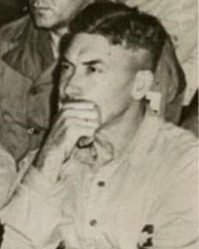0





















| Thumbs Up |
| Received: 8,929 Given: 6,738 |














| Thumbs Up |
| Received: 3,596 Given: 409 |

Yes, this is a common Slavonic legend. For example the legend of the Hungarian castle's building: Déva. The name origin from the Slavonic deva = girl world and of course she was sacrificed at the time of the building of the castle, she was walled up into the wall.














| Thumbs Up |
| Received: 388 Given: 32 |

So I answer here as I said.
This legend is about keeping the word. But isn't keeping the word a very distinctive and prominent part of the life and culture of Ghegs more than Tosks? By accepting that this legend talks about keeping the word, you are admitting that with a lot of probability is of Ghegs that we are talking about, not Tosks.
As for the question, I think that these people knew that there wasn't an afterlife to be punished or blessed for their missed oath, so that it would have been for them of the supreme importance to give everything they had to keep their word and honouring the oath in the "living" world. This is at least how I interpret it. Give me your opinion.
I though keep to not understand how this may link this legend to Tosks and not Ghegs.
This is a grave statement, that need a thorough analysis. Prove what you claim.The short story is that that legend testifies about a culture that was at the core of a civilization. It's not a legend about barbarians. The people that built those castles and the cities near them, were the same people that built appollonia, butrint, athene, and so on. But Greek priests that re-wrote the history, couldn't understand it to include even those cities as "Greek colonies".













| Thumbs Up |
| Received: 101 Given: 49 |

Actually there is severe sanction and punishment in the society for breaking ones word, as Skerdilaid mentioned. The afterlife is indeed meaningless but all dishonors have to be cleansed in this world, in blood. And if you die you just pass this on this debt to the next in your blood line, thats how that works.
Keeping ones word was very basic but important role to fulfill in this society centered upon the concept of honor, it was to preserve life. Without it and with widespread breaking of word there would be rampant killing and the society would wipe itself out.
















| Thumbs Up |
| Received: 1,239 Given: 134 |

The legend is not Slavic, the legend is pagan. Sacrifice of a person, often a symbol of fertility such as a woman in child bearing age, so that the construction of a project may succeed is a commonly occurring theme in several pagan legends. I have personally heard the same story for the other castles in Albania, I understand that many other cultures also have their own versions. For example Curtea de Argeș Cathedral.
There are currently 1 users browsing this thread. (0 members and 1 guests)
Bookmarks